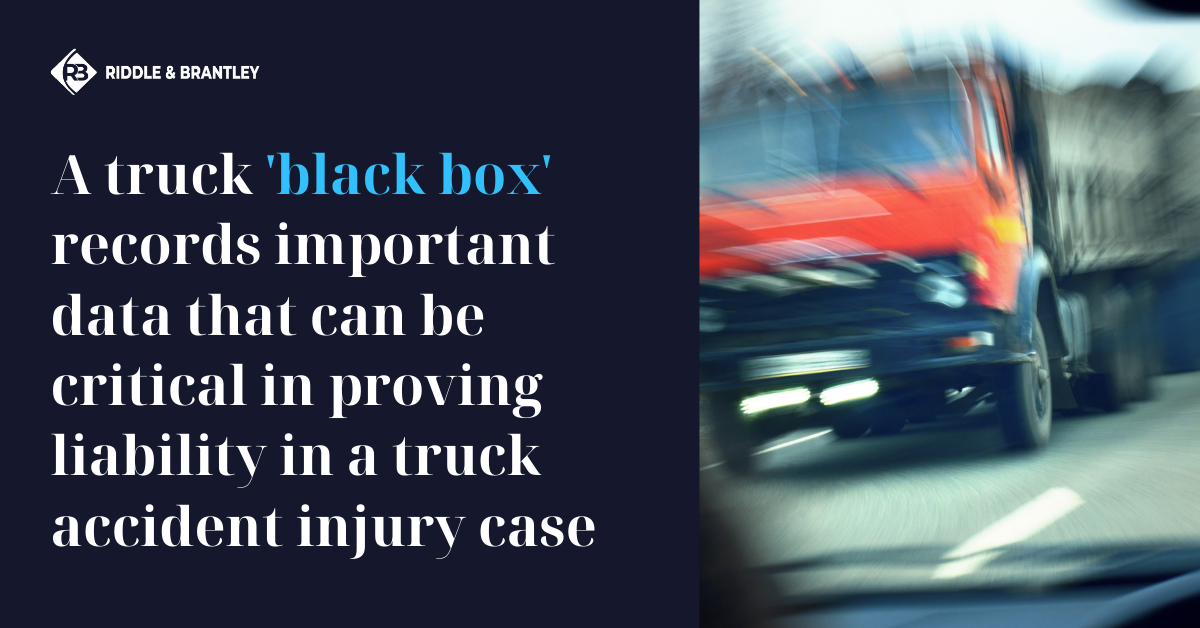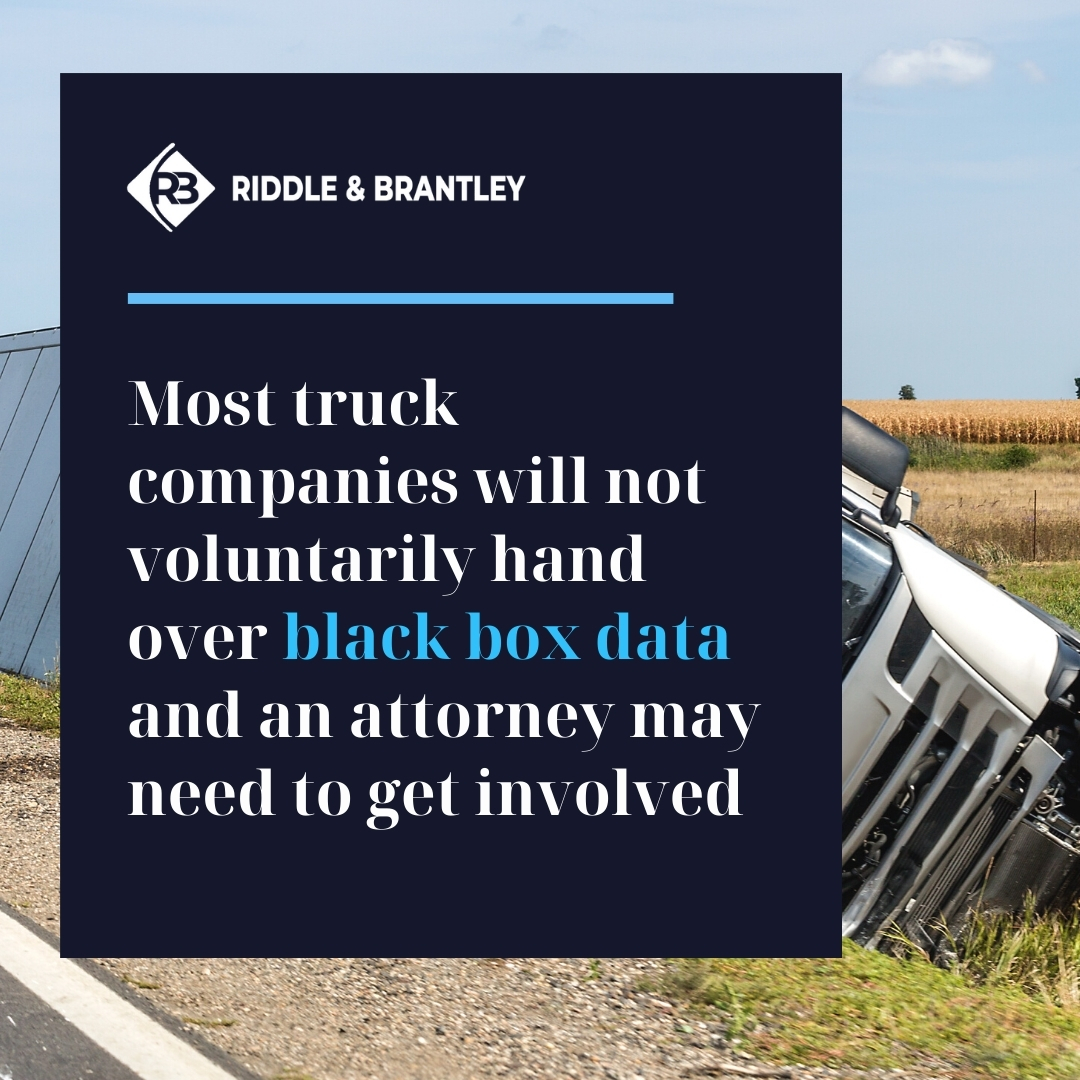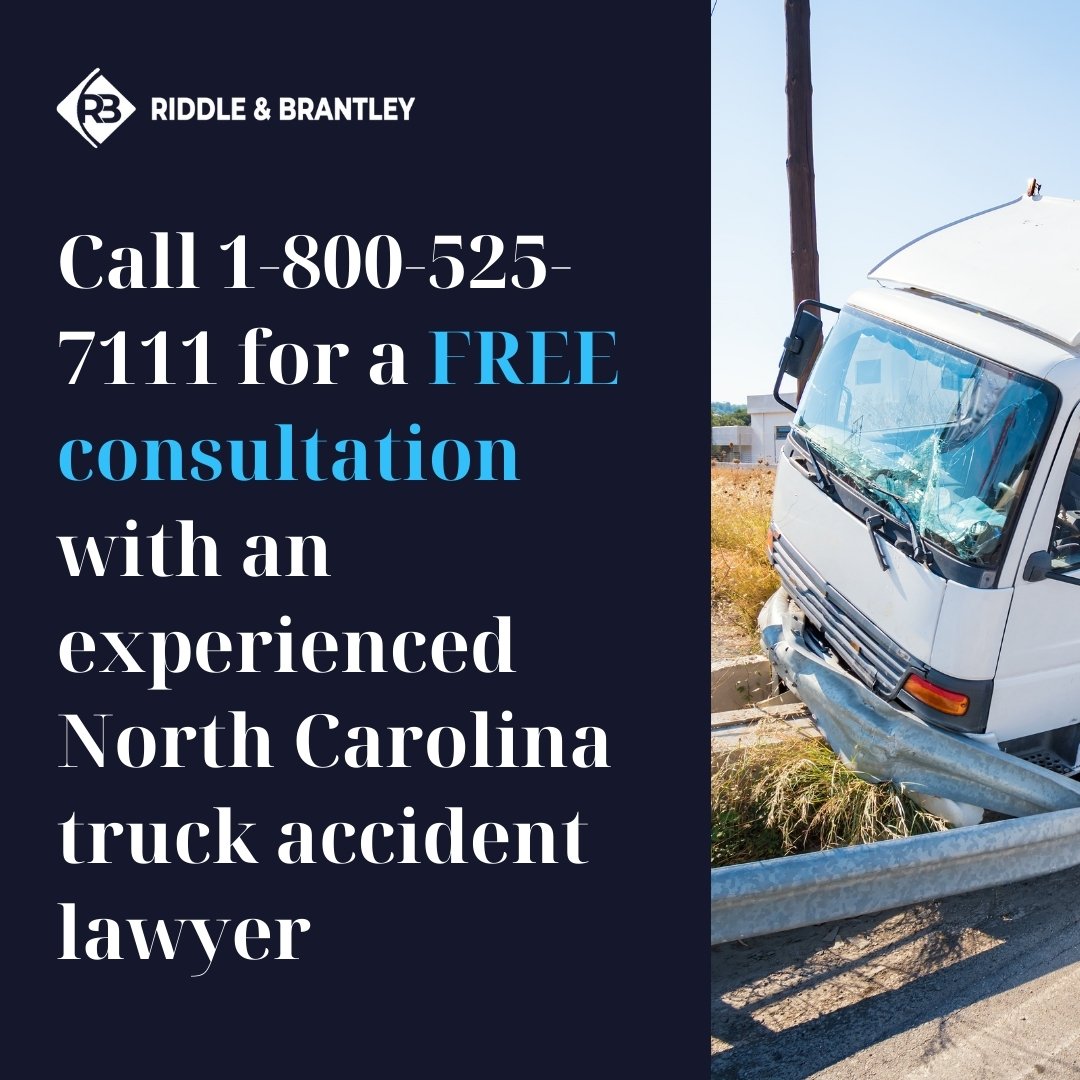What is a Black Box and How Can It Help My Truck Accident Case?
Many of our clients have been involved in serious truck accidents, or sometimes accidents involving tractor-trailers, and the “black box” can often play a critical role in the truck accident investigation and proving liability. Our truck accident lawyers are often asked, “What is a black box, and how can it help my truck accident case?”
In this blog post, we’ll explain what a truck’s black box is, and how it can help prove liability and strengthen your truck accident injury case.
What is a Truck Black Box?
 A black box, sometimes called an “electronic control module” (ECM) or “event data recorder” (EDR), is a computer system that records data about the physical properties of a truck or tractor-trailer. This data can help law enforcement, accident investigators, and truck accident attorneys determine what was happening before and during an “event,” such as a truck accident. Truck ECMs are similar to the black boxes found in airplanes, which are similarly used to determine the circumstances and conditions prior to and during a plane crash.
A black box, sometimes called an “electronic control module” (ECM) or “event data recorder” (EDR), is a computer system that records data about the physical properties of a truck or tractor-trailer. This data can help law enforcement, accident investigators, and truck accident attorneys determine what was happening before and during an “event,” such as a truck accident. Truck ECMs are similar to the black boxes found in airplanes, which are similarly used to determine the circumstances and conditions prior to and during a plane crash.
Do All Trucks Have a Black Box?
Not all trucks and tractor-trailers are equipped with black boxes. These data recorders were originally installed by truck manufacturers in order to contest warranty claims, but their use has since become more widespread. At this time, most trucks and tractor-trailers built since the 1990s have black boxes.
What Kind of Information Does a Black Box Record?
A truck black box can record all types of data that can help investigate a truck accident and, in the case of a potential injury claim, prove liability.
Depending on the specific model, a truck’s black box may record some or all of the following information:
- What the truck’s speed was immediately before the crash
- Whether the truck accelerated or decelerated immediately before the crash
- Whether the truck driver was using cruise control prior to the truck accident
- Whether the truck’s brakes were applied and when
- How often the truck was being driven at, above, or below the speed limit
- Whether the truck’s airbag deployed
- Whether the truck driver was wearing a seatbelt prior to the truck accident
- How many separate crashes (“events”) the truck was involved in, and the duration between those crashes
- Tire pressure
- GPS coordinates / location
- Truck usage data (when and for how long a truck was driven)
Some truck black boxes even record communications, such as emails, between truck drivers and the trucking or logistics company. These records can prove valuable in determining whether or not the truck driver was under pressure to exceed safety limits on driving.
How Do I Get a Truck’s Black Box Data?
If you’ve been injured in a truck accident, it is important to obtain the truck’s black box data as quickly as possible. While most newer black boxes keep data for at least 30 days before it’s recorded over, older trucks may have ECMs that only store the data for a few days.
To make matters worse, in some cases, truck drivers and/or trucking companies may seek to destroy black box data in order to protect themselves from a lawsuit or injury claim.
 Most trucking companies will not voluntarily provide truck black box data, so it is important to consult with an experienced truck accident lawyer if you’ve been injured and may have a claim.
Most trucking companies will not voluntarily provide truck black box data, so it is important to consult with an experienced truck accident lawyer if you’ve been injured and may have a claim.
In certain cases, a lawsuit must be filed against a truck company, seeking to prevent them from destroying ECM data, or to compel them to turn over the data to investigators.
An experienced truck accident lawyer can help obtain the truck’s ECM data and analyze it to determine the conditions and circumstances surrounding the accident, and who was at fault. At Riddle & Brantley, our team even includes experienced truck accident investigators who can assist with this complicated process, and we often bring in experienced accident reconstructionists to strengthen our clients’ cases, as well.
Can a Black Box Help My Truck Accident Case?
Absolutely. A truck’s black box may contain valuable information that can be used by a truck accident attorney to help prove liability and strengthen your claim or lawsuit.
If you’ve been injured in a truck accident, call our experienced truck accident lawyers at 1-800-525-7111 or complete the fast and easy form below.
We can help investigate the truck accident, which may include obtaining data captured by the ECM.
In certain cases, we’ll even go to court to compel the trucking company to hand over the data.
In one recent wrongful death case, our attorneys obtained black box crash data and even subpoenaed traffic data from Google Maps in order to prove liability. We filed multiple lawsuits and eventually settled the claim for $9.45 million in total compensation as part of separate settlements (see disclaimer below).
“They turned a heartbreaking situation completely around.”
–Tonya Taylor, Riddle & Brantley client
For a FREE consultation with an experienced North Carolina truck accident lawyer, please call 1-800-525-7111.
There is no obligation and you won’t pay any attorney fees unless we win your case and you receive financial compensation.
Call 1-800-525-7111 today and let’s review your truck accident case. When appropriate and necessary, we can obtain black box data to help determine what exactly happened and prove liability in the crash.
We believe Justice Counts for those injured in truck accidents due to others’ negligence and we are ready to help you and your loved ones however we can.
*** Disclaimer: The results mentioned are intended to illustrate the type of cases handled by the firm. These results do not guarantee a similar outcome, and they should not be construed to constitute a promise or guarantee of a particular result in any particular case. Every case is different, and the outcome of any case depends upon a variety of factors unique to that case.
 We can help investigate the truck accident, which may include obtaining data captured by the ECM.
We can help investigate the truck accident, which may include obtaining data captured by the ECM.